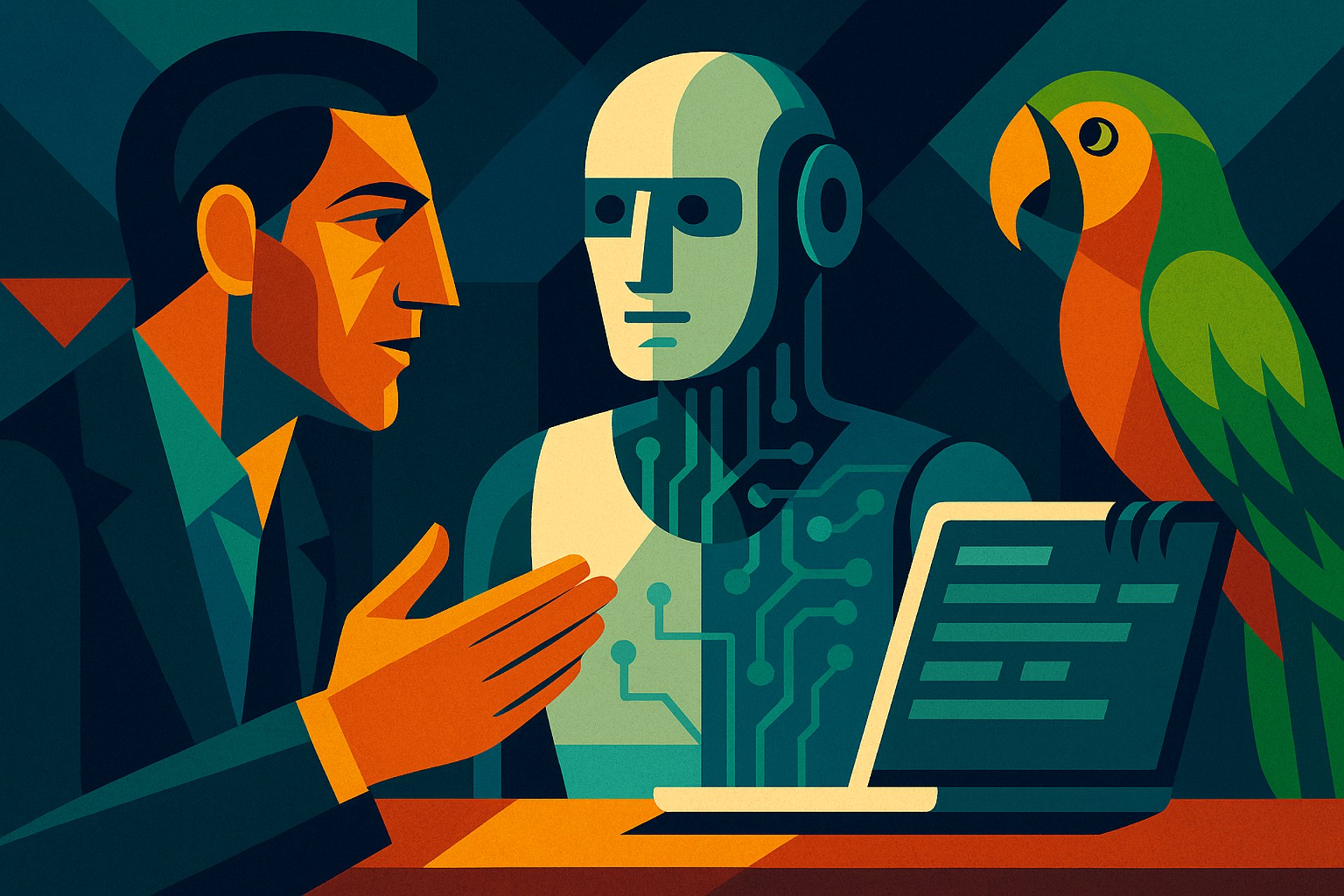
Is AI Just a Parrot with a Spreadsheet? The Truth Behind the Hype
It mimics, it predicts, it dazzles — but does it understand? As AI writes business plans in under a minute, experts from Europe and the U.S. warn: don’t mistake imitation for intelligence.
By Maria Johansen
24.06.2025
One morning in early 2025, a young founder typed a simple prompt into OpenAI’s ChatGPT
“Write a full business plan for a sustainability startup targeting Gen Z consumers — include market research, competitor analysis, a go-to-market plan, and a three-year financial forecast.”
Within sixty seconds, the machine had delivered. The business plan looked clean, strategic, and eerily polished. There were charts, margins, projections, marketing channels, and a competitive moat worthy of Harvard Business Review. Investors were shown the results, and they didn’t blink. They assumed it came from a human team.
But here’s the problem: it didn’t think like a strategist. It sounded like one.
The Parrot Effect: What AI Really Does
In a March 2025 whitepaper from the European Commission’s Joint Research Centre (JRC Science for Policy Report), researchers warned that generative AI — even when it appears creative — is fundamentally mimicking and recombining known patterns. “These models don’t know. They predict what a good answer looks like based on statistical patterns in their training data.”
Sam Altman, CEO of OpenAI, echoed this sentiment in an interview with The Economist, admitting that even GPT-5 “doesn’t reason like a human being — it reflects our patterns to us in high fidelity.”
That’s why some researchers now call LLMs “synthetic parrots” — they can impressively imitate, but they don’t understand.
The Illusion of Intelligence
A 2025 study published by Oxford Internet Institute showed that over 70% of business professionals overestimated AI’s reasoning ability after interacting with tools like ChatGPT and Copilot. The more fluent and natural the AI sounded, the more users attributed strategic thinking to it, even when it was confidently wrong.
One test involved generating a marketing plan for a fictional startup. While the AI nailed tone and structure, it hallucinated competitor data and fabricated sources. “It was fluent nonsense,” the lead researcher noted.
Europe’s Ethical AI Taskforce Responds
Across Europe, lawmakers and researchers are working to reinforce guardrails. The 2025 AI Act — provisionally passed by the European Parliament — specifically targets misuse in financial and enterprise decision-making. According to a report by the European Parliament Research Service, systems that simulate judgment without transparency or human verification are flagged as “high-risk.”
Business plan generators and financial modeling AIs fall squarely in this zone.
The American View: Use with Caution
MIT’s Sloan School of Management published a study in early 2025 analyzing how over 100 startup teams used generative AI to develop go-to-market plans. The result? Speed increased 10x. Quality varied dramatically.
“AI is a multiplier,” said Sloan professor Andrew McAfee. “If you feed it clarity, it structures fast. But if you feed it garbage, it amplifies the nonsense.”
That’s why OpenAI’s own documentation now includes prompts like “verify with real data” and “double-check financial assumptions.” Even the machines know you shouldn’t trust them blindly.
Mimicry Is Not Mastery
The danger isn’t in AI writing a business plan. The danger is believing that because it can write one, it understands your business. It doesn’t. It doesn’t know your customer. It doesn’t test, iterate, or bleed for your idea. It has no stake. What it does — brilliantly — is offer a template—a polished parrot song. But when investors dig deeper, they want more than a melody.
Where This Leaves You
Use ChatGPT, Copilot, and Gemini to speed up structure. Use them to brainstorm, explore tone, and outline decks. But don’t confuse AI’s confidence with competence. As the European AI Board concluded in January 2025, “Generative models may aid productivity, but they lack situational understanding and cannot substitute entrepreneurial experience. The founders who succeed won’t be the ones who rely on AI, but the ones who challenge it. So yes, let the parrot sing. But you write the chorus.
Recommended Resources:
Oxford Internet Institute Research Projects
European Parliament AI Risk Framework 2025
info@konsultbiz.com
© 2025. All rights reserved.
Disclaimer: All articles represent the author’s views. Although efforts are made to ensure accuracy, no liability is accepted for any errors or misstatements. Please contact us immediately if corrections are needed before taking any legal or public action.


